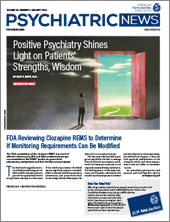Several psychiatrists working in an outpatient clinic had gotten increasingly concerned by the behavior of some of their patients toward their pets. One patient had confined his pitbull to his small apartment without opportunities for exercise; another had tied her dog to a tree in the backyard for days without attending to the dog; and yet another had a dog that showed signs of neglect, emaciation, and dehydration.
The psychiatrists had given advice to the patients for months over the treatment of their pets without success. With increasing concern and alarm, they wondered whether they should report their patients to Animal Control/Rescue Services, but they were worried about contravening HIPAA, an illegal and unethical act. On the other hand, they wondered if they had an ethical obligation to report animal abuse. They subsequently sought the counsel of their hospital ethics committee.
The term “cruelty to animals” was first incorporated into law in the United States in New York state in 1867 following vigorous advocacy by the American Society for the Prevention of Cruelty to Animals. Every state now has laws banning animal cruelty, and the definition of cruel acts has expanded to include abuse of all kinds and neglect. Consequences for breaking the law have included hefty financial fines as well as long prison sentences. Of particular concern is the association between animal cruelty and violence. Individuals who abuse animals are also more likely to abuse humans than those who do not, thereby putting family members, especially children, at risk. Psychiatrists treating these patients are concerned not only about potential serious legal consequences for their patients, but also for the life of the animals and, in some cases, the safety of the patients’ family members. And while they are rightfully concerned about breach of confidentiality, they fear that reporting the abuse could rupture the therapeutic alliance, even in the absence of legal encumbrances.
While some state laws have incorporated animal abuse into domestic violence laws and some specifically mandate veterinarians to report animal abuse, mental health professionals are not mandated reporters. However, all state laws recommend reporting animal abuse.
While the Society for the Advancement of Psychotherapy advocates mandatory reporting of animal abuse as an ethical injunction for psychologists, neither the American Psychological Association nor the American Psychiatric Association ethics codes reference it. Nonetheless, some APA members have wondered whether our ethics mandate to recognize a responsibility to participate in activities contributing to the improvement of the community and the betterment of public health (Section 7 of the “APA Principles of Medical Ethics With Annotations Especially Applicable to Psychiatry”) justifies reporting animal abuse. Additionally, they posited that since our paramount responsibility is to our patients (Section 8), helping them refrain from breaking the law, which early and careful reporting may achieve, is ethical. These tangential connections to APA ethics are problematic and may be insupportable.
While current laws and ethics may not provide definitive answers, psychiatrists may focus attention on psychological and behavioral interventions geared at managing the problem. As noted above, patients who suffered extreme trauma in childhood such as physical or sexual abuse, exposure to domestic violence, or to animal abuse are more predisposed to abusing animals in the future. Therefore, animal abuse may be a maladaptive sequela of severe trauma. Personality characteristics such as easy irritability and anger and low frustration tolerance increase the risk of animal abuse. Psychoeducation such as alerting patients of the illegality of animal abuse and the potential for serious legal charges should be coupled with encouraging them to work collaboratively in therapy to avoid such negative consequences. Anger, stress management, and behavioral therapy techniques, along with animal-assisted therapy, may also help. Strategies for teaching empathy should be incorporated into care. Consider establishing a discussion group centered on pets, which may provide an opportunity for peer education and peer pressure to treat animals humanely. Pharmacological interventions include mood stabilizers, antipsychotics, and antianxiety medications as indicated.
If a patient continues to abuse a pet despite intervention, psychiatrists should seek legal advice regarding how to proceed, especially in recalcitrant cases of severe abuse/crime. ■

